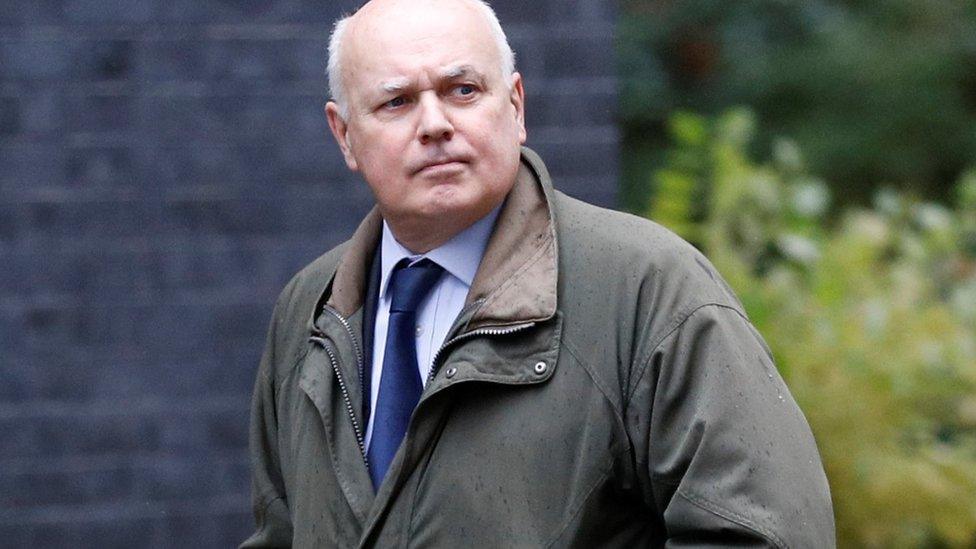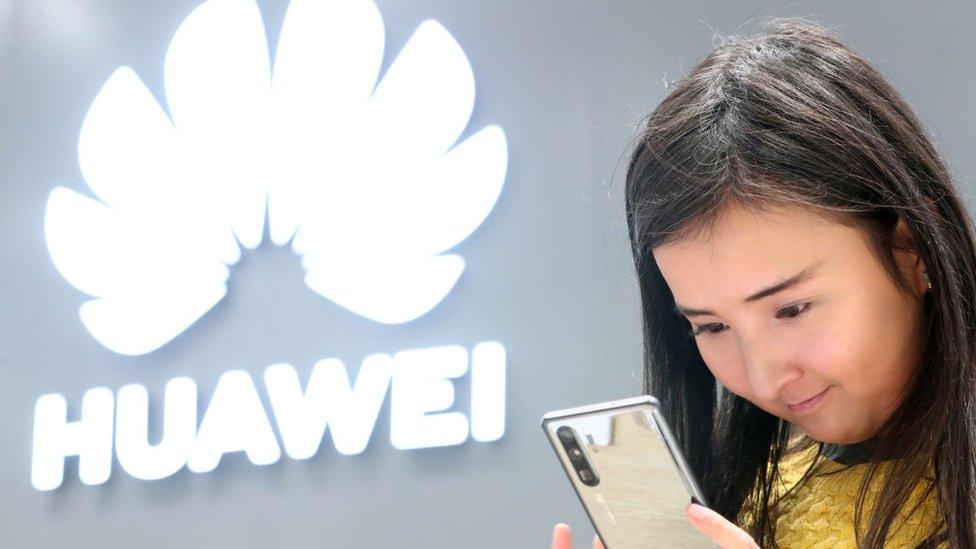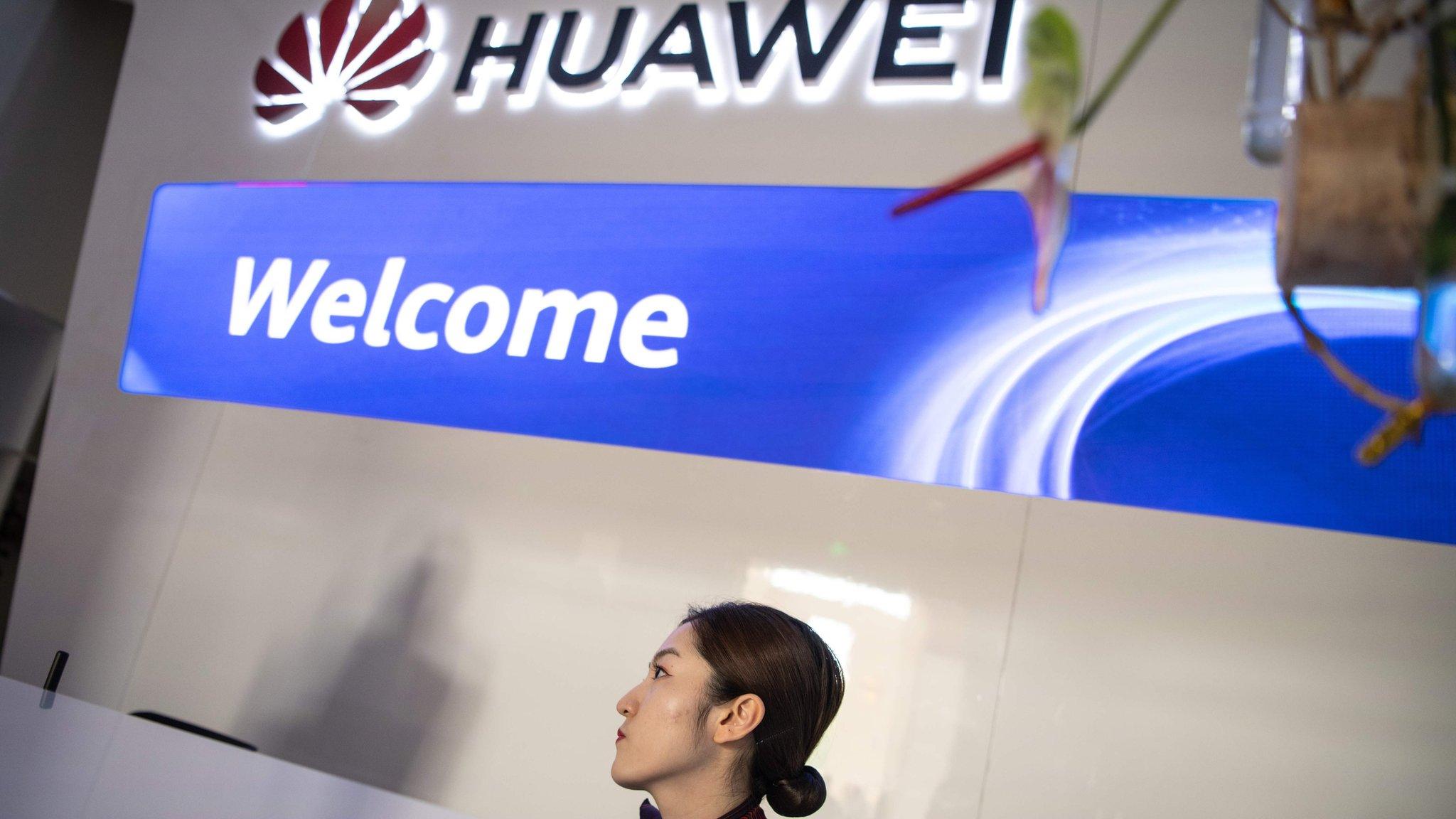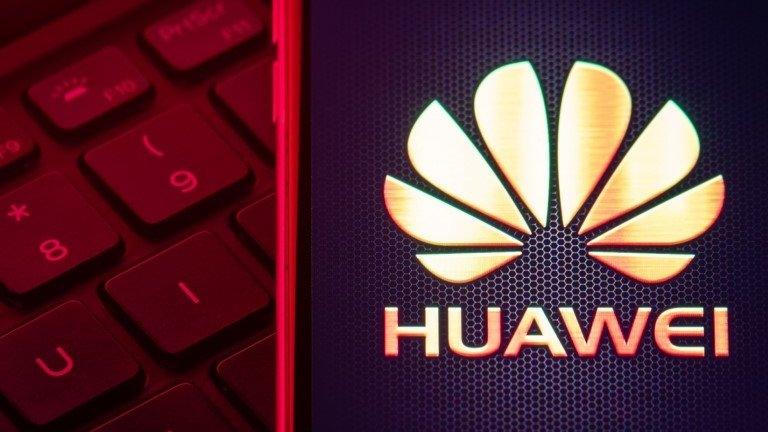Huawei: Senior Tories want Huawei 'ruled out' of 5G plans
- Published

Former Conservative leader Sir Iain Duncan Smith wants the UK to rethink its decision
Senior Conservatives have written to Tory MPs to raise concerns about the government's decision to allow Huawei to play a role in the UK's 5G network.
In a letter, the group - which includes four ex-cabinet ministers - said there were alternatives to the Chinese firm.
They want "high-risk" vendors to be ruled out now, or phased out over time.
Foreign Secretary Dominic Raab said the decision followed a "rigorous" review by security experts and that Huawei's involvement would be restricted.
The letter comes as US vice-president Mike Pence said the US was "profoundly disappointed" with the UK's decision.
The letter from Sir Iain Duncan Smith, Owen Paterson, David Davis, Damian Green, Tobias Ellwood and Bob Seely, which has been seen by the BBC, says some MPs were "working to find a better solution".
"We are seeking to identify a means by which we ensure that only trusted vendors are allowed as primary contractors into our critical national infrastructure," it says.
"Trusted vendors would be companies from countries that have fair market competition, rule of law, respect human rights, data privacy and non-coercive government agencies."
'Rule-out untrusted vendors'
The men say they want the government to "rule out hi-tech from untrusted, high-risk vendors" in the UK's infrastructure, or to ensure future legislation includes "sunset clauses" to limit the length of time such companies can be used.
The UK government has said restrictions would be in place on Huawei's role in the 5G network.
These include: banning Huawei from supplying kit to "sensitive parts" of the network, only allowing it to account for 35% of the kit in a network's periphery, and excluding the firm's equipment from areas near military bases and nuclear sites.
But Sir Iain told the BBC giving Huawei any stake at all was too much of a risk.
He said: "You have an organisation from a country that is an aggressor in terms of cyber warfare and a company that is clearly totally and utterly in the hands of the Chinese government who demand absolute obedience on these matters."
He added it is "simply not manageable to have an organisation like that inside your important network" and Huawei's involvement should therefore be "zero".
Sir Iain and the other men behind the letter have also cited examples of other countries which they said had already rejected using Huawei in their 5G networks at all, including Australia, the US and Japan.
How will the Huawei 5G deal affect me?
Mr Pence told CNBC that the US did not believe that using Huawei's technology was "consistent with the security or privacy interests of the UK, of the United States and it remains a real issue between our two countries".
He said he had told Prime Minister Boris Johnson in September that they were willing to begin to negotiate a free trade arrangement after Brexit but, when asked if the Huawei decision could be a problem, he replied: "We'll see. We'll see if it is."
He added: "We're anxious to build our economic ties, but we have made it clear to Prime Minister Johnson and to officials in the UK, that as we expand opportunities to build out 5G across this country... we want to see our companies meet the needs in the United States and UK and among all our allies without the compromise of privacy and the compromise of security that necessarily comes with Huawei and control by the Chinese Communist Party."
And speaking at an event in London last week, US Secretary of State Mike Pompeo said his country considered that using the Huawei's technology was "very difficult to mitigate".
Huawei has always denied that it would help the Chinese government attack one of its clients. The firm's founder has said he would "shut the company down" rather than aid "any spying activities".

Analysis
By BBC Political Correspondent Matt Cole
These are not the first MPs to raise worries about Huawei's involvement in the 5G network.
And the arguments they make were well-aired before the government decided to give the Chinese company up to a 35% share of the infrastructure project.
But the fact the six politicians - including four former cabinet ministers and the chair of the Commons defence committee - are continuing to battle against the plan, underscores that this remains a live issue.
So does the comment from the US vice president, Mike Pence, who told a US broadcaster he is "profoundly" disappointed with the decision to proceed with Huawei.
His "we'll see" answer to questioning on whether a UK-US trade deal will be jeopardised will also not go unnoticed by British officials.
But Downing Street doesn't wish to respond to the letter, save only to remind that Boris Johnson said on Wednesday he does want to reduce Huawei's involvement.
He didn't say by how much - and the government looks somewhat hamstrung by what it says is a lack of other companies able to step in to the breach.
The letter-writing MPs think other firms could be brought in and, in part, that's why they've written this letter, to get other parliamentarians on board and coming up with ideas on how to proceed.
- Published14 July 2020

- Published18 May 2019

- Published28 January 2020
